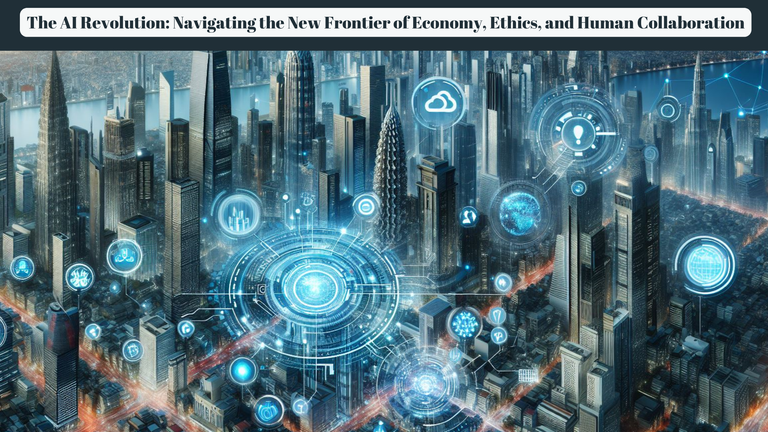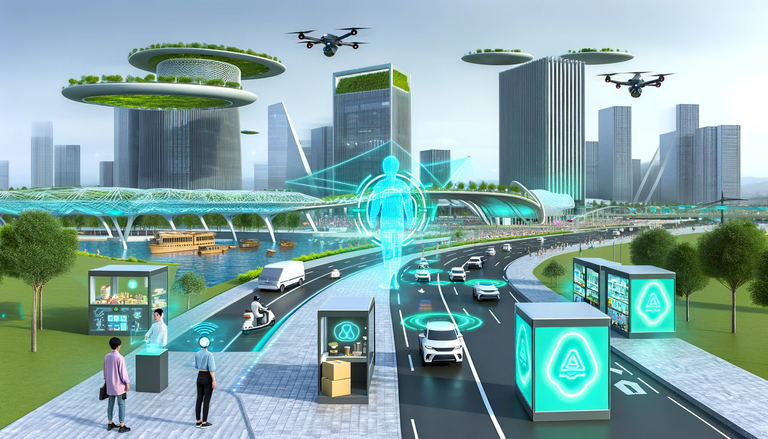
REFERENCE AT THE END OF THIS POST

Introduction
Over the cusp of the AI revolution, humanity stands at a juncture unprecedented in its history. Innovations like OpenAI's ChatGPT 4.0 and Google's Gemini herald an era that promises to redefine human achievement and existence. As we delve deeper into the capabilities of AI and its societal and economic manifestations, we embark on a journey to explore the tangible impact of this technological frontier.

The Capabilities of AI Technologies
AI's reality contrasts sharply with the sapient machines of science fiction, demonstrating a complex interplay of predictability and novelty. Technologies such as ChatGPT and Gemini exemplify artificial general intelligence (AGI), which excels in pattern recognition and data analysis, blurring the lines between human and machine intelligence within the constraints of their design.
Machine Learning: The Engine Behind AI
Machine learning algorithms are the powerhouse of AI, transforming vast datasets into predictive insights and facilitating conversations that feel eerily human. Yet, devoid of consciousness or creativity, they serve as an extension of human intellect, positioning AI as a facilitator rather than a rival.
Economic and Social Change
AI's impact spans across industries, revolutionizing healthcare with algorithms that diagnose diseases with remarkable accuracy, and reshaping finance through advanced analytical tools. However, this transition is fraught with ethical dilemmas, such as job displacement in the automotive industry due to self-driving technology, illustrating the nuanced balance between progress and preservation.
Impact on Human Civilization
AI redefines the norms of information consumption, decision-making, and social interaction. From AI-powered social media algorithms to automated content creation, the digital landscape is increasingly shaped by machine learning, raising critical questions about privacy, autonomy, and the essence of human agency.
Ethical Considerations
The ethical landscape of AI is complex, encompassing issues from data privacy to algorithmic bias. The imperative for ethical AI requires a framework that acknowledges the rights and responsibilities of both creators and users, ensuring that technology serves humanity's broadest interests.
Reflection on Intelligence and Human-Machine Collaboration
The AI revolution challenges our perceptions of intelligence, offering a future where humans and machines collaborate, amplifying creative potential and addressing global challenges. This synergy exemplifies the transformative potential of AI, from combating climate change to revolutionizing healthcare access.

Conclusion
The AI revolution marks a pivotal chapter in human history, compelling us to scrutinize our values and aspirations. As we navigate this new frontier, the responsible stewardship of AI becomes paramount, demanding collective efforts towards ethical guidelines and meaningful collaboration. This journey is not solely an exploration of technology but a call to action, urging us to engage with AI in ways that foster a sustainable and equitable future.
I invite you to ponder the role we each play in this ongoing revolution. Let's embrace the potential of AI with responsibility, creativity, and holistic vision, shaping a future where technology amplifies the best of humanity.


Source

Blog Banner created by me, using my Canva Pro account
INLEO Animated Divider is courtesy of @ doze
All other images were Adobe Firefly, Dall-E 3, and/or Photosonic generated using my prompts
Posted Using InLeo Alpha